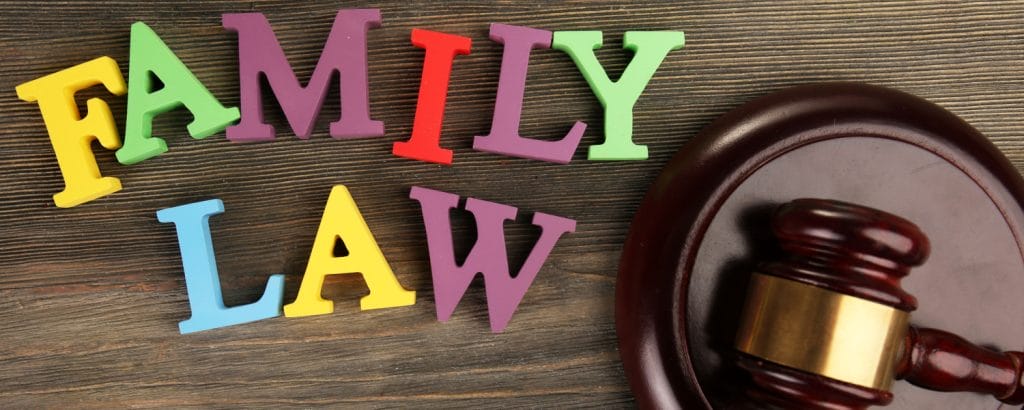In a world where circumstances can take unexpected turns, the challenge of maintaining stability for children becomes even more crucial. One such challenge arises when the custodial parent is incarcerated, leaving the child’s well-being hanging in the balance. In such circumstances, obtaining custody of the child requires careful consideration, legal navigation, and a focus on the child’s best interests.
In this article we will discuss how to obtain custody of a child when the custodial parent is incarcerated, different types of custody agreements, and we will consider what happens to child support payments and visitation rights. Keep reading to find out more, and click here to learn more about child custody.

How to Obtain Custody of a Child
When the custodial parent is incarcarated it is important for the non-custodial parent to move quickly. There are many types of custody orders but for this article we will be covering two:
Emergency Custody
After a parent is incarcerated, a judge will usually grant the other parent custody, but this is not a guarantee. If you share custody, or if you are the noncustodial parent, then you may have to file for emergency custody. This is a document you must file with the court showing that the custodial parent is not able to properly care for their children due to incarceration, and that emergency custody is necessary for the care of the child. You can find helpful forms on your county clerk’s website that will help explain how to obtain custody of a child in different scenarios, among other forms. If you’re in Illinois you can check here.
Temporary Guardianship
When the incarcerated parent is single, and there is no custody agreement with the other parent, then often family members or close friends will step in as a temporary guardian. This process is a little more complicated than an emergency custody agreement. If you are a close friend or family member, then you will have to contact DCFS (Department of Child and Family Services sometimes called Child Protective Services) so they know you are seeking a guardianship. You will then have to file with the courts for temporary guardianship stating how long you expect to be the guardian.
There will also be an investigation by the courts to ensure you can provide a proper environment for the children. These investigations look at your home and its location, as well as your background history to determine if the environment will be good for the children.
This process can take a while, but the court understands these matters require timeliness and should accommodate for a speedy process. Make your motions as detailed as possible to help the courts understand the totality of the situation. Employing the help of an experienced family law attorney can make a big difference in how long it takes for the guardianship to be granted.

Becoming a Guardian
When the custodial parent is incarcerated, you may suddenly become a guardian by yourself. Before becoming a guardian there are a few things to consider. These tips will help you gain custody and be a good guardian. You should:
Prioritize the Child’s Best Interests
When trying to obtain custody of a child when the custodial parent is incarcerated, the primary concern should always be the child’s best interests. Courts typically base their decisions on what will provide the child with the safest, most nurturing environment. It’s crucial to demonstrate how obtaining custody will be in the child’s best interests and contribute to their emotional, physical, and educational well-being.
Make sure your living area is clean and suitable for children. If you have a history of crime or drug use and your home is dirty or far away from the child’s school then the court may be less inclined to grant you guardianship.
Understand Legal Guardianship
Legal guardianship grants an individual the right to make decisions about a child’s upbringing, education, healthcare, and general welfare. When the custodial parent is incarcerated, pursuing legal guardianship can be a viable option. To do so, you will need to file the appropriate legal documents in court, proving that the custodial parent’s current circumstances are detrimental to the child’s welfare. Be as detailed as possible in these documents.
Consult an Attorney
Navigating the legal complexities of the process to obtain custody of a child can be overwhelming, especially when the custodial parent is incarcerated. Consulting with an experienced family law attorney is highly recommended. They can guide you through the process, help you understand your legal rights, and offer advice on building a strong case for custody while you deal with other important matters.
At KGN Law Firm we understand that the process of obtaining custody is difficult, especially when you are dealing with an incarcerated friend or family member. If you need help with a situation similar to this then do not be afraid to reach out and schedule an appointment today. You can also check out our article “How Much Does a Family Law Attorney Cost in Illinois?” to learn more about hiring a family law attorney.
Gather Evidence
To strengthen your case, gather relevant evidence that supports your claim for custody. This might include evidence of the custodial parent’s criminal record, their inability to provide a stable home environment due to incarceration, and any history of neglect or abuse. Collect character references, records of your relationship with the child, and documentation of your ability to provide a safe and nurturing environment. This may include pictures of your living environment, financial documents, or witness statements from other family or friends that have seen your interactions with the child. Check out our article “How to Present Evidence in Family Court in Illinois” to learn more about gathering evidence.
Establish Stability
Courts prioritize stability and consistency in a child’s life. Be prepared to demonstrate that you can provide a stable and nurturing home environment for the child. This might include showing evidence of your financial stability, living conditions, and ability to meet the child’s emotional, educational, and physical needs.
Develop a Co-Parenting Plan
If the custodial parent’s incarceration is temporary, it’s important to consider a co-parenting plan that allows for their involvement once they are released. This is especially important if you are the other parent. This can help maintain a connection between the child and their parent while ensuring the child’s well-being remains the top priority.
Attend Court Proceedings
Throughout the custody process, you’ll likely need to attend court proceedings. Be prepared to present your case, answer questions truthfully, and provide evidence to support your claims. Dress appropriately and conduct yourself respectfully, as the court’s perception of your demeanor can influence their decisions. You should be respectful to the judge and everyone else in the courtroom.
Hear the Child’s Voice and Feelings
If your child is old enough, then the court may consider their wishes and feelings about custody. While the final decision rests with the court, a child’s opinion can carry weight, especially in cases where their well-being and emotional health are paramount. Listen to their concerns and do your best to accommodate them.
Try Mediation and Negotiation
In some cases, reaching a custody agreement through mediation or negotiation can be beneficial. This approach can reduce the stress and conflict often associated with court battles and allow both parties to work together to determine the best outcome for the child. Find a third party mediator and attempt to reach a plan that the courts will accept.

Post-Custody Considerations
Once custody is granted, the journey doesn’t end. After you obtain custody of your child, ensure you continue providing the best environment for the child’s growth and well-being. This might involve regular communication with the incarcerated parent (if appropriate), maintaining stability in the child’s daily routine, and seeking any necessary support services.
Make sure to follow all court orders and remember important dates. If your custody agreement is temporary, then remember when the arrangement ends so you can be prepared for whatever the next steps are.
Child Support
Another question you might be asking is what happens to child support payments when the custodial parent is incarcarated? The easy answer is that child support payments are not supposed to stop just because a parent is incarcerated. They still have a legal obligation to make child support payments. Often this will be taken out of a bank account, from rental properties, or they can make a motion to modify child support payments while incarcerated. The motion to modify child support payments should prove that the parent is unable to make payments due to a change in financial situation.
If a modification motion is not filed, and payments stop, the custodial parent can file a motion of contempt stating that the other parent has not been making payments according to their legal obligation. If the incarcerated parent cannot prove they are unable to make these payments then they will still have to pay. They can either sell assets or pay back the amount after incarceration.
When the incarcerated parent is the one that is receiving child support payments then the other parent should file a modification to child support payments. Gaining custody of the child would mean they no longer have to pay the other parent. If the new guardian is a friend or family member you may still have to pay child support payments to the new guardian. Check with the courts and maintain communication so you understand your legal obligations.
It is also possible to be put in jail because of non-payment of child support. To learn more about this issue, check out our article titled “How Many Child Support Payments Can You Miss Before Jail Time?”
Visitation Rights
Just because you are incarcerated does not mean you automatically lose all visitation rights. Often visitation is left up to the guardian of the child. There are no laws that force the guardian to take the child to visit the incarcerated parent and there is no ability for the incarcerated parent to leave jail to visit. If the child is old enough then they can choose to visit on their own, but because children are often too young to do this, visitations are typically left up to the guardian.
Conclusion: How to Obtain Custody of a Child When the Custodial Parent is Incarcerated
In conclusion, obtaining custody of a child when the custodial parent is in jail requires careful planning, legal expertise, and a steadfast commitment to the child’s well-being. Remember, the court’s main priority is the best interests of the child, so focus on creating a strong case that demonstrates your ability to provide a stable, nurturing environment. Consulting with legal professionals, gathering evidence, and being prepared for court proceedings are all essential steps in navigating this challenging situation. Ultimately, by prioritizing the child’s needs and working within the legal framework, you can increase your chances of obtaining custody and providing the child with a brighter future despite the current circumstances.
MEET WITH AN ILLINOIS FAMILY LAW ATTORNEY TODAY
The Family Law attorneys at Koth Gregory & Nieminski understand that your family is the top priority, which is why we offer SAME-DAY APPOINTMENTS. If you need a divorce or other family law services, you can schedule your first meeting through our online appointment calendar. We look forward to meeting you.
Disclaimer: This article (How to Obtain Custody of a Child When the Custodial Parent is Incarcerated) may contain information that is outdated as Illinois law continuously evolves. Meeting with an experienced family law attorney is the best way to ensure you are receiving the most current information about How to Obtain Custody of a Child When the Custodial Parent is Incarcerated.

Published by Dustin Koth on February 23, 2024
